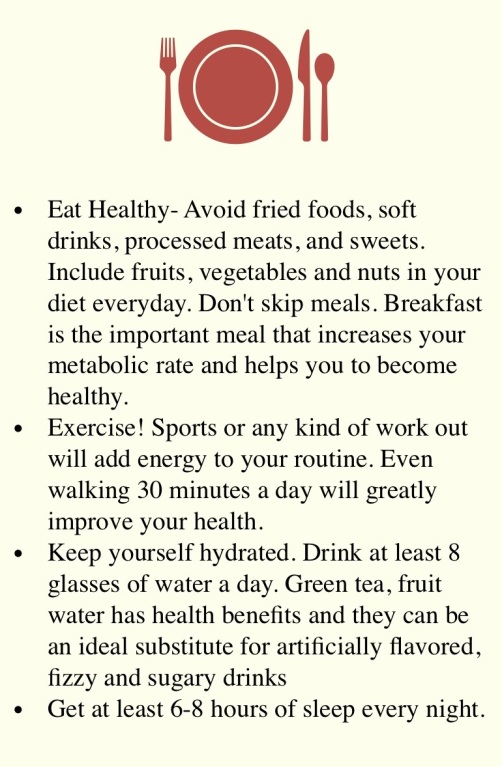What is Wellness?

Wellness is a dynamic process of being aware and making choices towards a happy and fulfilling life. It can be understood as how children feel and how they function, both on a personal and a social level, and how they change their lives for good.
Strong and safe relationships for children that includes unconditional love, respect from their parents, teachers and relatives build a foundation from where they take the steps towards self awareness and self growth. Not only they understand themselves they also learn to understand others and create meaningful relationships in the community.
Six focus areas of Wellness for Kids
To live a fulfilling life children need to achieve optimal wellness through their actions and emotions. There are six focused areas that can help children lead a life of higher quality.
Let your child follow the ACTION STEPS
mentioned along with each wellness area
Physical Wellness
Recognise the need for physical activity, healthy foods, nutrition and sleep

Action steps
- Eat Healthy- Avoid fried foods, soft drinks, processed meats, and sweets. Include fruits, vegetables and nuts in your diet everyday. Don’t skip meals. Breakfast is the important meal that increases your metabolic rate and helps you to become healthy.
- Exercise! Sports or any kind of work out will add energy to your routine. Even walking 30 minutes a day will greatly improve your health.
- Keep yourself hydrated. Drink at least 8 glasses of water a day. Green tea, fruit water has health benefits and they can be an ideal substitute for artificially flavored, fizzy and sugary drinks
- Get at least 6-8 hours of sleep every night.
Environmental Wellness
Environmental wellness involves establishing a sustainable lifestyle, protecting natural resources, and eliminating excessive waste.

Action Steps:
- Learn to live in harmony with the earth by understanding the impact of your interaction with nature.
- Develop good health by occupying pleasant, stimulating environments that support well-being. Research studies have revealed that rooms with bright light (natural and artificial), can improve health outcomes such as depression, agitation, and sleep.
- Take action to protect the world around you. Use the resources wisely.
- Ride your bike, walk or take public transportation, declutter your surroundings, recycle and compost, plant and tend a garden, use natural products.
Emotional Wellness
Coping effectively with life and creating satisfying relationships makes children emotionally intelligent. However, experiencing stress at a tender age shows negative effect on their body and mind. According to a study published by Harvard, significant stress also “threatens the function of other organ systems, leading to higher rates of hypertension, obesity, and diabetes.”

Action Steps:
- Try to maintain a positive attitude even when problems arise.
- Time management done wisely helps lower down your stress level. Discover your personal stress reliever.
- Find a person whom you can trust and who you can openly share your feelings with.
- Seek professional (Counsellor or a Life Coach) help when you need it.
Do Kids Experience Stress?
Do you know why laughter is necessary for your children?
Social wellness
Developing a sense of connection, belonging, and a well-developed support system
 Action Steps:
Action Steps:
- Get involved. Look for some activities in the neighbor hood or your local area, you will definitely find a group of your interest.
- Know who your best friends are.
- Identify when you find that the friendships are not working properly.
- Offering support to the people around will have a goodwill towards you.
Intellectual Wellness
By recognizing creative abilities of our children and encouraging them to expand their knowledge and skills we can help our kids form a commitment to lifelong learning. It can be practised well by continuous learning early, or introduce new ways of learning.

Action steps:
- Be a life-long learner.
- Be aware of current affairs.
- Do your home assignments on time and if you need academic help, seek unhesitatingly.
Spiritual Wellness
Knowing a sense of purpose and meaning in life

Action Steps:
- Find a quiet place and spend time there every day doing mindfulness meditation or self reflection.
- Practise positive affirmations daily.
- Spend time appreciating the natural world around you. It connects you with your inner self.
Each area is equally important in the pursuit of optimal wellness. To reach that level of wellness it is necessary to understand and take the action steps in order to optimize each of the areas of wellness.
Parents can help children:
- Understand and manage emotions,
- Open up and speak out
- Be Compassionate- feel and show empathy for others
- Set and achieve positive goals
- Practise self reflection
- Develop self confidence
- Practise values
- Foster relationships
- Become peaceful, calm, resilient, powerful and positive
- Make responsible decisions
- Practise and visualise positive affirmations
Parents are a child’s first teachers and role models because children repeat positive behaviors they see in their parents.
Disclaimer – This article is a personal view of the author.



